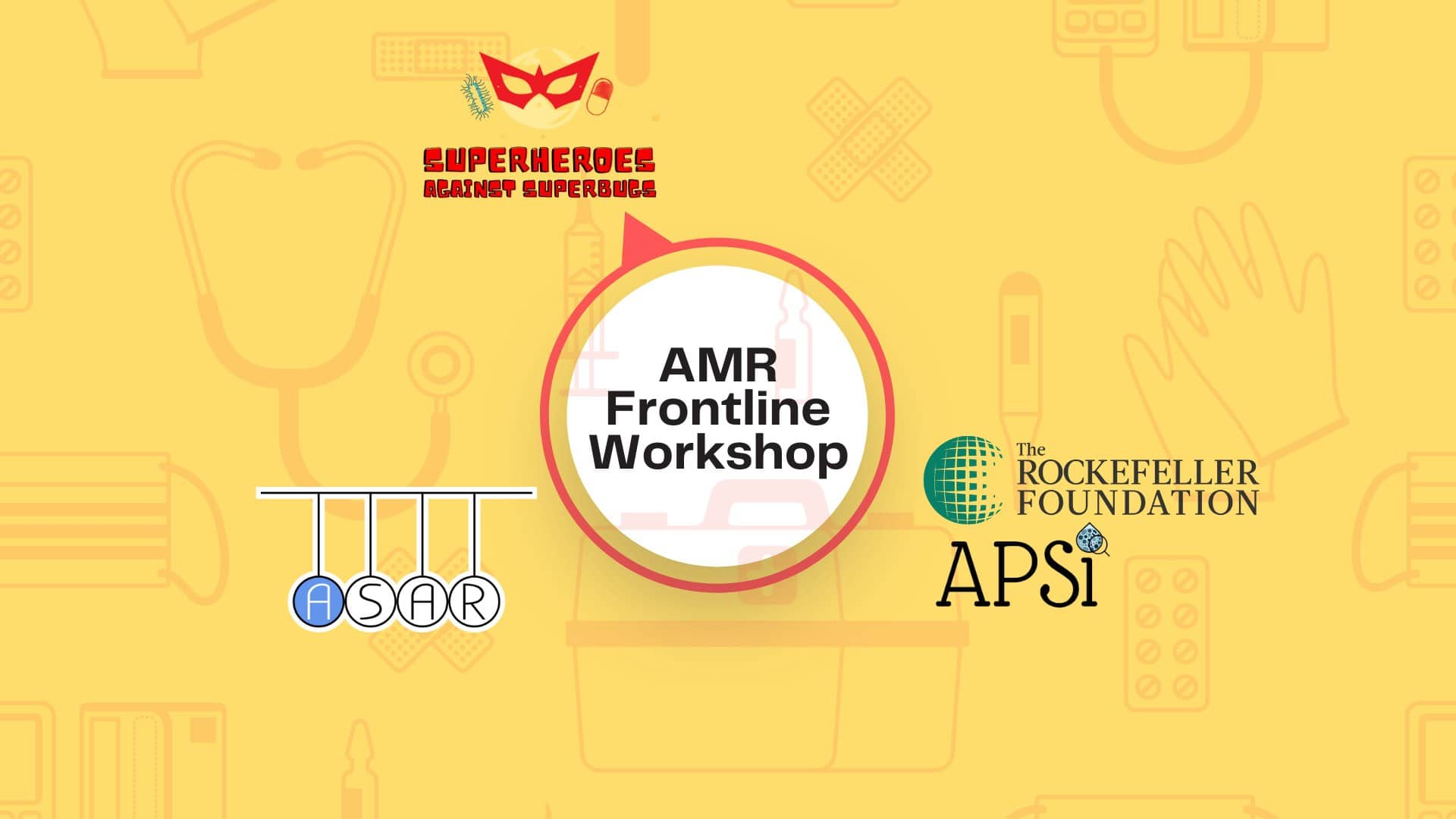The first online workshop in the AMR Frontline series, a Superheroes against Superbugs initiative funded by The Rockefeller Foundation as part of the Alliance for Pathogen Surveillance Innovations (APSI) in India, was conducted in collaboration with the Association for Socially Applicable Research (ASAR). This non-profit organization works as a think tank and advocacy group for research, awareness, and action on social issues.
The AMR Frontline Workshops have been designed for medical students, particularly those in the phase of studying microbiology and pharmacology, to build on their basics and equip them with crucial knowledge and skills on AMR. By introducing AMR-safe practices early on, the program aims to foster a generation of active healthcare professionals in the fight against AMR. The workshop intends to instill a sense of urgency regarding AMR and encourage medical students to engage more deeply with it throughout their training and beyond.
The two-hour online workshop took place on March 2, 2024, and engaged around 43 medical students across India. The main objective of the workshop was to equip the students with practical knowledge and strategies to address the issue of AMR in their personal capacity. Additionally, the workshop aimed to educate the students on using modern research tools such as surveillance to offer public health solutions to the problem. The workshop featured sessions from eminent specialists: Dr. Ranga Reddy Burri, President of the Infection Control Academy of India; Dr. Shraddha Karve, Research Faculty Fellow at Ashoka University; and Dr. Chandrika Konwar, Program Associate for the APSI-India Project at Superheroes against Superbugs.
The event began with the opening remarks from Ms. Vidhi Wadhwani, a final-year medical student and volunteer at ASAR. Following this, Dr. Chandrika Konwar briefly introduced SaS and APSI-India. After the introductions, SaS conducted a pop quiz to warm up the participants and gauge their understanding of AMR.
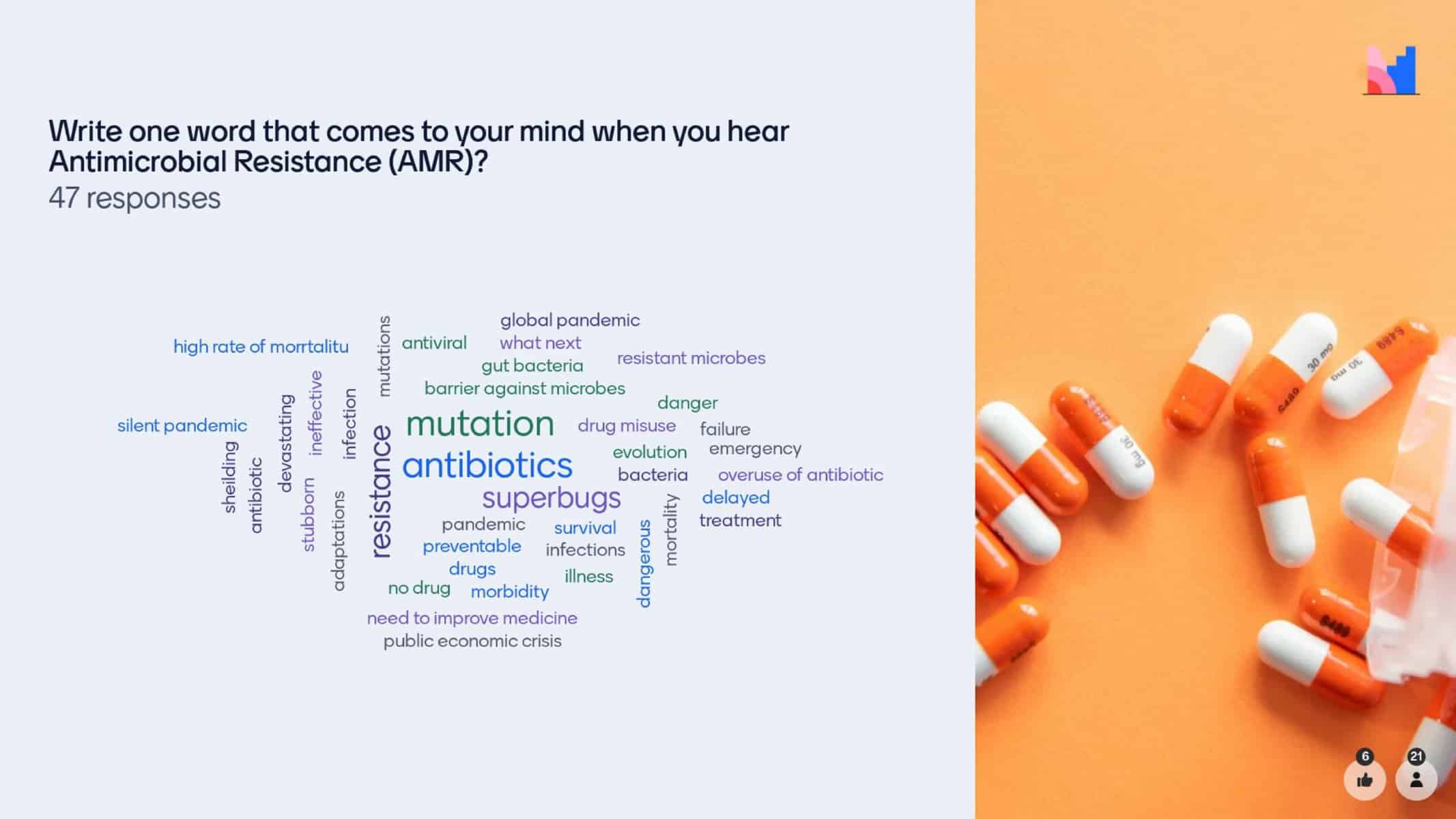
Word Cloud of participants’ responses on their understanding of the word Antimicrobial resistance (AMR). Source: Mentimeter
In the first session of the workshop, Dr. Chandrika Konwar introduced antimicrobial resistance and the looming threat to public health and mortality. Dr. Konwar also discussed the science behind AMR by focusing on how microbes develop antimicrobial resistance and spread across the environment.
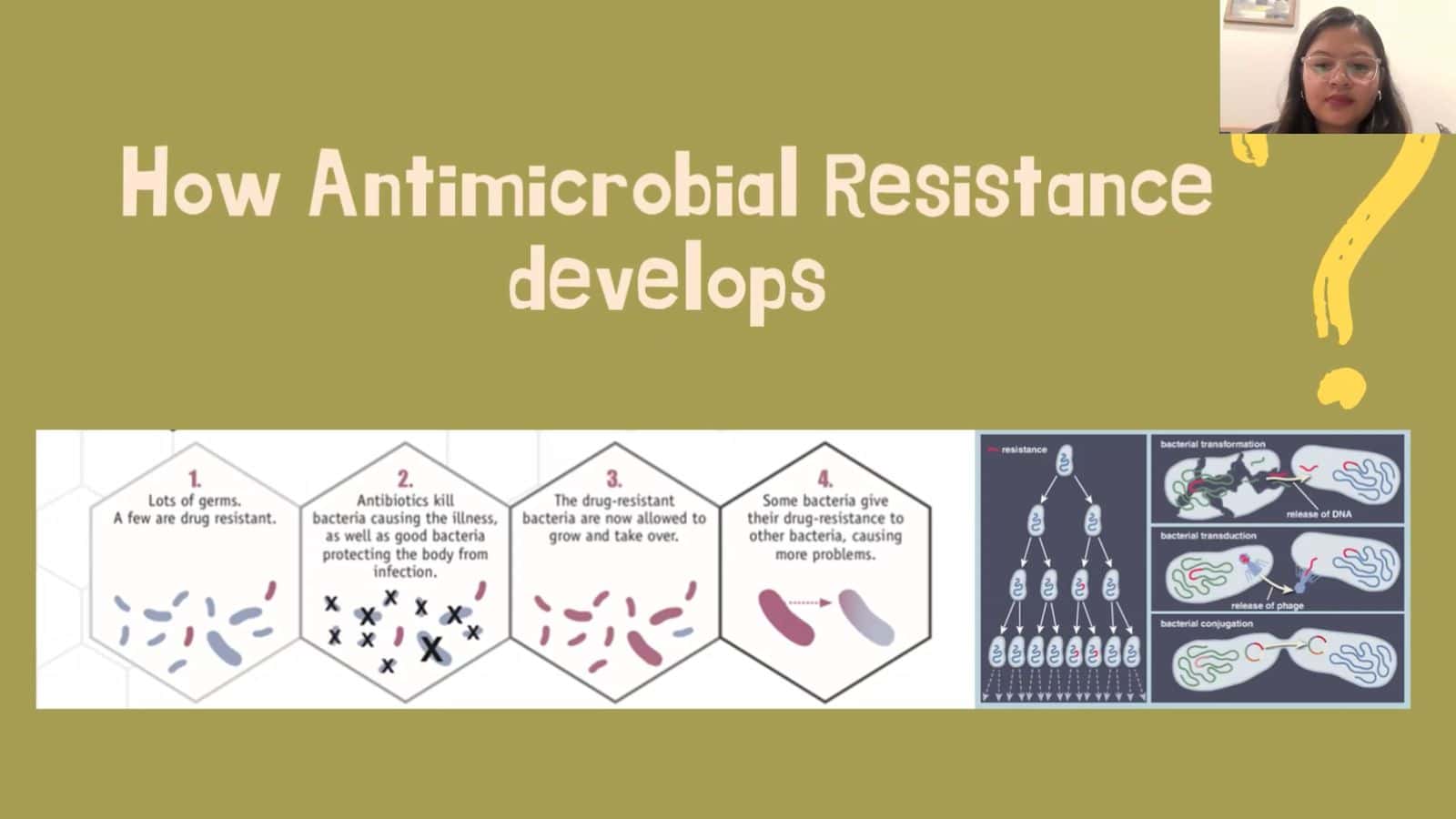
Dr. Chandrika Konwar discussing the development of antimicrobial resistance in microbes.
The second session was delivered by Dr. Ranga Reddy Burri. Dr. Burri highlighted the clinical challenges and policy measures needed to contain AMR. Emphasis was placed on the necessity of infection prevention, proper diagnosis, and appropriate prescription to manage and control AMR. He also addressed the global and national efforts to formulate policies to mitigate the AMR crisis, stressing the importance of international health cooperation and investment in research and development.
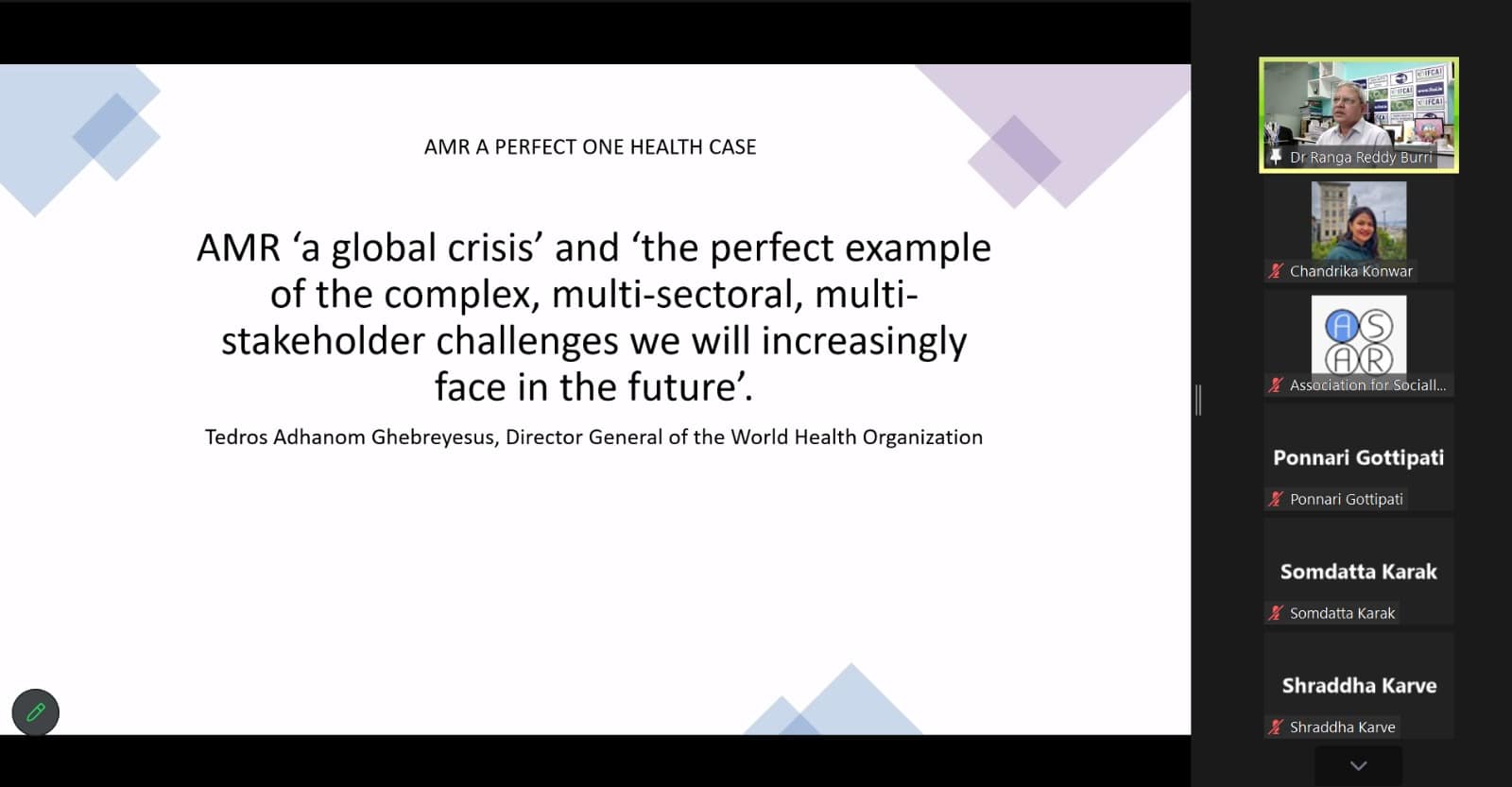
Dr. Ranga Reddy Burri talking about the impact of the antimicrobial resistance crisis.
In the third session of the workshop, the focus shifted from understanding AMR to surveillance. Educating medical students about AMR surveillance equips them with the necessary knowledge to effectively contribute to detecting, controlling, and researching antimicrobial resistance, thereby enhancing patient care and public health outcomes. Dr. Shraddha Karve presented the role of surveillance and research in combating AMR, emphasizing the need for robust data collection and analysis to understand and monitor resistance patterns. She discussed the initiatives by APSI India in conducting genomic surveillance and mapping resistance in different organisms, highlighting the crucial role of technology and interdisciplinary collaboration in addressing AMR.
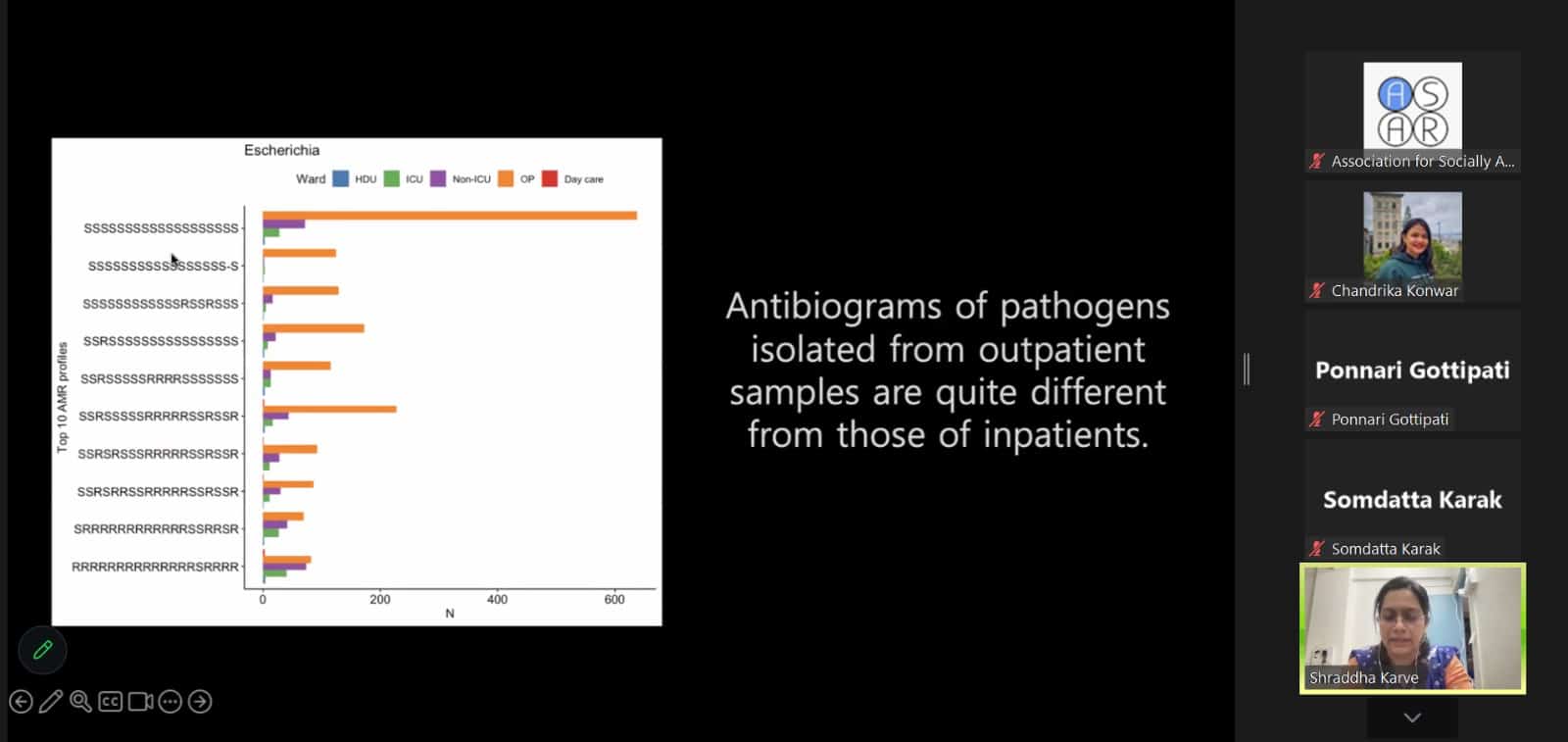
Clinical Surveillance by Dr. Shraddha’s team revealed the high prevalence of extensive multi-drug resistance in samples.
During the workshop, creative tools were employed to reinforce the messages being conveyed. This was achieved by showcasing case studies from popular TV series that tackled the issue of multi-drug resistance. One of the case studies focused on how antibiotic misuse can contribute to the problem and highlighted the importance of patients consulting with their doctors before taking antibiotics. The other case study emphasized the need for active surveillance to track the emergence of new infections. Throughout the exercise, the participants proactively analyzed the case presented and identified the problem while suggesting action points to combat the pertinent issues. The event wrapped up with an exciting AMR Trivia quiz. The participants tackled an online quiz comprising five questions that encapsulated the essence of the expert talks.
The workshop ended with the conclusion and vote of thanks by Dr. Chandrika Konwar, leaving participants with some action points to combat AMR and online resources to further their understanding of AMR. Overall, the workshop underscored AMR as a complex, multifaceted issue necessitating a coordinated global response. It was an attempt to introduce medical students to informed clinical practices, robust surveillance, and research to motivate them to tackle AMR and safeguard public health with the appropriate action.
Key Takeaways and Future Directions
- Infection Prevention: Prioritizing infection prevention can significantly reduce the need for antimicrobials and slow the development of resistance.
- Rational Use of Antimicrobials: Healthcare providers must ensure antimicrobials are used judiciously and only when necessary.
- Surveillance and Research: Enhanced surveillance systems and research are essential for the early detection of resistance patterns and informing effective interventions.
- Global Cooperation: Combating AMR requires a concerted effort from all stakeholders, including governments, healthcare professionals, and the public, on a global scale.
- Innovative Therapies and Technologies: Investing in the development of new antimicrobials and alternative therapies, such as phage therapy, is crucial to outpace the evolution of AMR.
Feedback and Workshop Outcomes
The workshop on AMR garnered positive feedback for both the speakers and the activities. The participants’ responses indicate a strong appreciation for the educational content provided in the workshop, especially the introduction of AMR surveillance. The audience appreciated the talk for offering a different perspective on AMR, particularly how such research can be utilized as an essential public health tool. The audience also enjoyed the interactive nature of the workshop, particularly the quizzes, which captivated the audience and facilitated an immersive learning environment. The participants also expressed a desire for more such sessions, reflecting the workshop’s success in engaging them on these crucial aspects of AMR.
The feedback showed that the two-hour workshop succeeded in improving the participants’ comprehension of AMR and underlining its importance as a public health issue. The three most highlighted action points by participants to help combat AMR are- Education and Awareness about AMR among healthcare professionals and the public, promoting Antimicrobial Stewardship and Rational Use of Antibiotics, and Implementing AMR Surveillance and Research. This educational advancement was mirrored in their high confidence levels in taking actionable steps against AMR. Furthermore, the workshop inspired attendees to disseminate the knowledge gained, indicating a strong motivation to share insights with others and extend the reach of AMR awareness and education. Many participants expressed a desire for more in-depth sessions, indicating a need for such educational and awareness activities.
